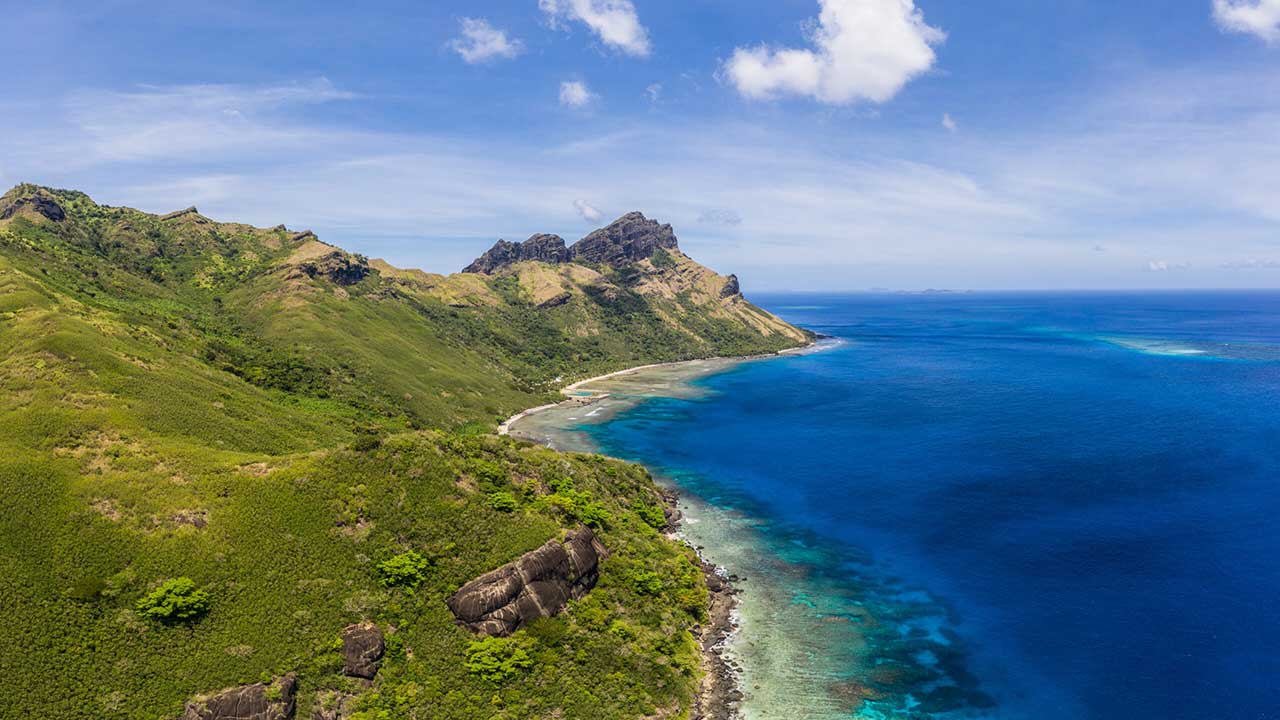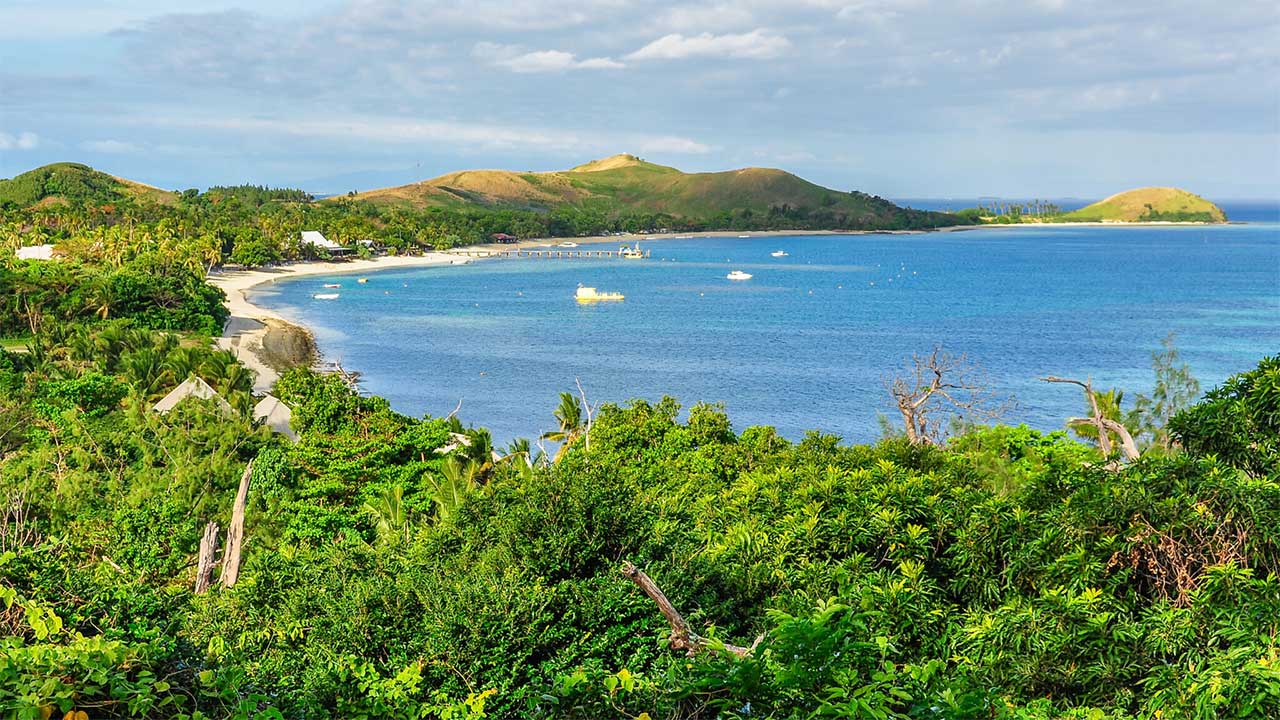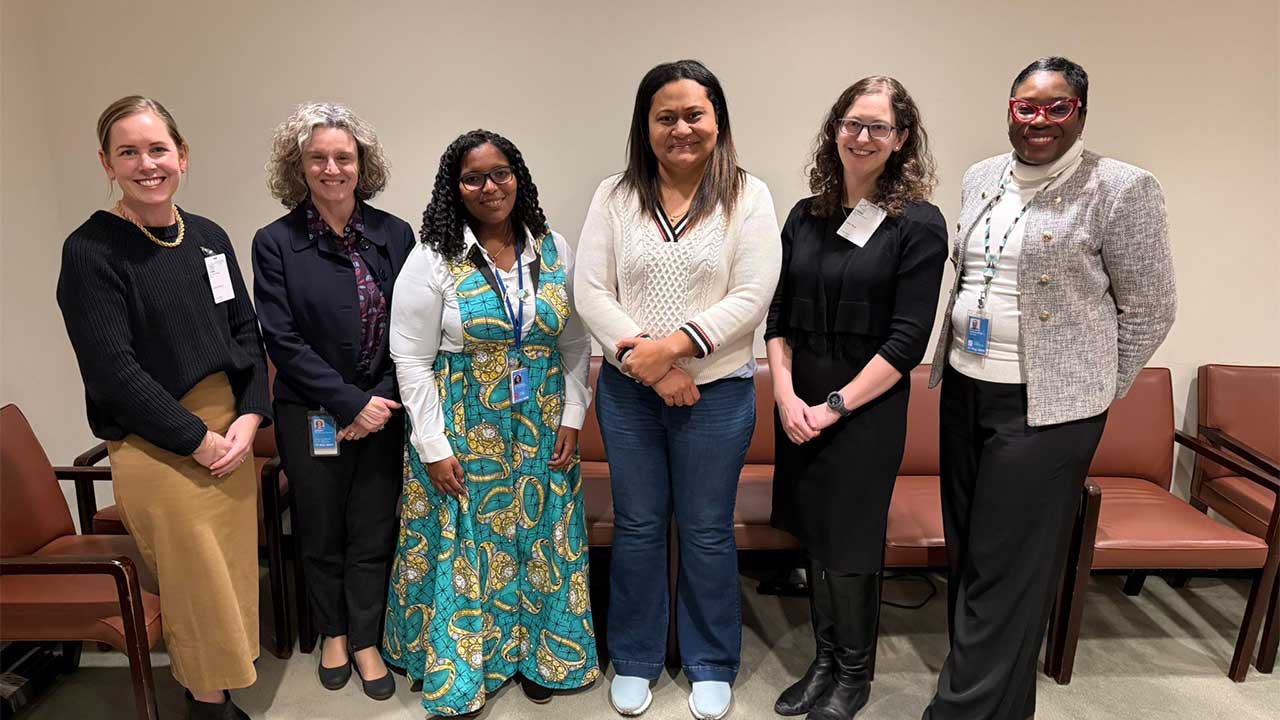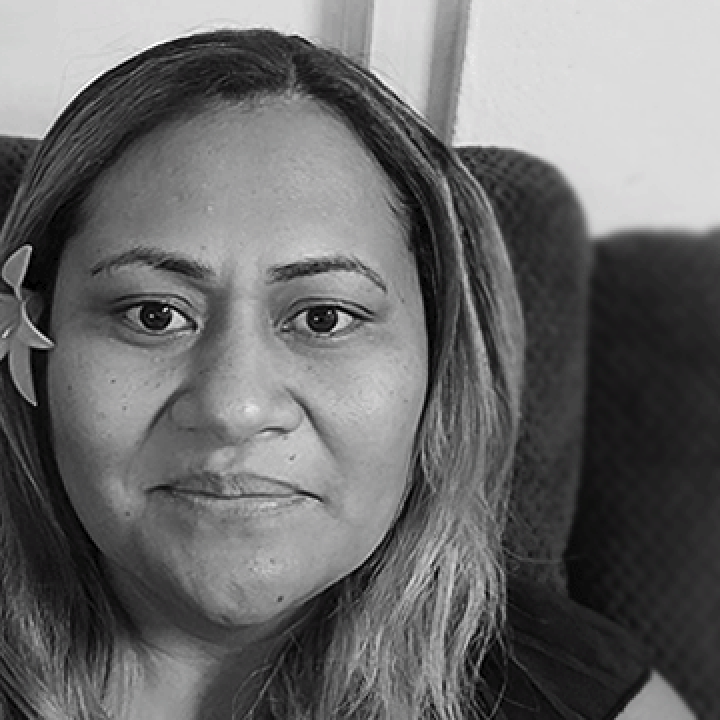
The Pacific stands at the frontline of climate change.
Rising seas and intensifying disasters threaten not only coastlines, but also livelihoods and cultural heritage.
Urgent action is needed to scale up solutions that enhance resilience, strengthen preparedness, and safeguard our way of life.
The urgency for a paradigm shift
Disasters in the Pacific transcend borders. Coastal communities are being displaced, marine ecosystems are under threat, and entire villages are losing ground to rising waters.
In Fiji, 27 per cent of the population lives within one kilometre of the coast, with 76 per cent within five kilometres.
Rising seas have already submerged homes, devastated crops, and desecrated ancestral burial grounds, signalling an urgent need for change.
It is time for a fundamental shift in disaster risk management – one that emphasises strengthening community preparedness and resilience.
Nature-based solutions: Protecting what protects us
One of the most effective ways to reduce climate risks is to work with nature, not against it.
Fiji is actively restoring mangroves, coral reefs, and wetlands – natural buffers that protect coastlines from cyclones, flooding and erosion.
Like many other Pacific Island nations, Fiji is demonstrating a commitment to sustainable adaptation, proving that protecting nature is essential to securing a safer, more resilient future for all.
Traditional knowledge: A powerful resilience tool
Climate action is not just about new technologies and policies. It is also about honouring the wisdom of Pacific communities.
In Fiji, the Tabu system – where fishing grounds are temporarily closed after a Chief’s passing – demonstrates how cultural traditions can drive conservation.
By limiting human activity, these areas allow marine ecosystems to regenerate, strengthening coastal defences against storms and erosion.
When combined with modern scientific methods, traditional knowledge becomes a powerful tool for sustainable resource management and climate resilience.

Coastal zone management
Fiji has developed comprehensive coastal zone management policies that focus on balancing development with environmental protection.
By ensuring that communities and industries along the coast are aware of the risks and impacts of coastal degradation, Fiji aims to protect its marine biodiversity while reducing vulnerability to climate-induced events.
This involves strengthening regulatory frameworks, encouraging sustainable land use practices, and implementing disaster risk reduction (DRR) strategies that prioritise the health of coastal ecosystems.
Strengthening early warning systems
Time is our most precious resource when disaster strikes, yet many of our Pacific communities still lack timely and effective early warning systems. Regional efforts like the Pacific Tsunami Warning Center have made strides, but warnings often don’t reach our most remote villages.
Our communities are the heartbeat of any response. They are the first responders, standing on the frontlines long before outside help arrives. That’s why when we design early warning systems, we must co-design them with the very people they are meant to protect. Their voices, experiences, and needs must shape these systems so that warnings are delivered in ways that truly resonate and work for them.
The power of regional and global partnerships
No Pacific nation can confront the climate crisis alone. Our greatest strength has always been our unity.
At the 53rd Pacific Leaders Meeting last year in Tonga, a significant step forward was the recognition of the Pacific Disaster Ministerial Meeting and the need to hold it biannually.
This is more than just a meeting – it’s a space for leaders to come together, share solutions, and build the partnerships necessary to navigate the worsening impacts of climate change.
But we cannot do this alone. We need the global community to stand beside us. We need support in safeguarding our oceans, managing our resources sustainably, and addressing transboundary threats like plastic pollution and overfishing.
Our survival depends on it, and so does the future of our planet.

Resilient future
Late last year, the Fiji Parliament passed a groundbreaking new disaster law that includes the critical issue of loss and damage within its framework.
We can no longer view climate change and disaster as separate challenges – they are deeply interconnected, and addressing one is essential for mitigating the other.
By implementing disaster risk reduction measures, we not only reduce the immediate impacts of disasters but also help lessen the long-term effects of climate change. In this effort, we need innovative solutions that are uniquely tailored to the context of our region, country, and communities.
This is a passion shared by Tetra Tech International Development, whose principles guide its work, ensuring that we truly live by the motto: “No one is safe until we all are.”
Tetra Tech’s commitment to resilience
At Tetra Tech, we are committed to building sustainable and resilient communities worldwide.
Our work in climate adaptation, disaster risk reduction, and environmental restoration aligns with the Pacific’s urgent needs reflected in the 2022 Pacific Ministerial Declaration.
By combining technical expertise with community-driven solutions, we aim to scale nature-based strategies, strengthen early warning systems, and unlock climate finance – turning ambition into action.
Read more about Tetra Tech’s work in climate resilience.
About the author
